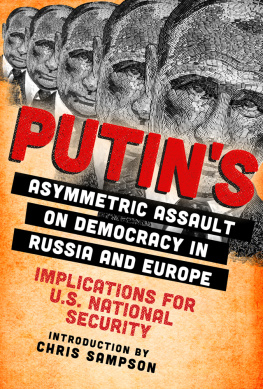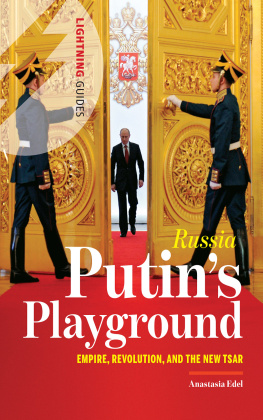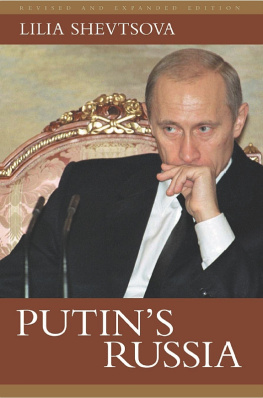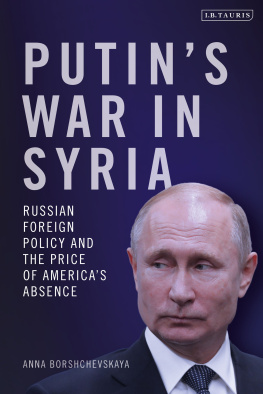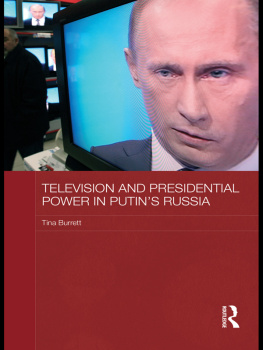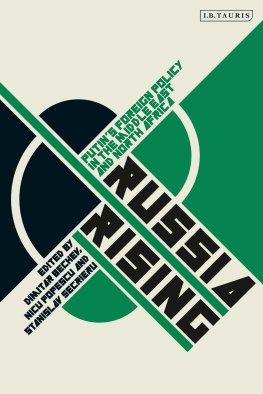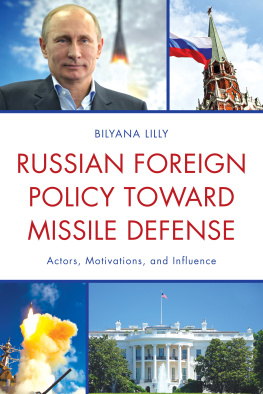First published by the 115th US Congress in 2018.
Introduction Copyright 2018 by Chris Sampson
All rights reserved. No part of this book may be reproduced in any manner without the express written consent of the publisher, except in the case of brief excerpts in critical reviews or articles. All inquiries should be addressed to Skyhorse Publishing, 307 West 36th Street, 11th Floor, New York, NY 10018.
Skyhorse Publishing books may be purchased in bulk at special discounts for sales promotion, corporate gifts, fund-raising, or educational purposes. Special editions can also be created to specifications. For details, contact the Special Sales Department, Skyhorse Publishing, 307 West 36th Street, 11th Floor, New York, NY 10018 or .
Skyhorse and Skyhorse Publishing are registered trademarks of Skyhorse Publishing, Inc., a Delaware corporation.
Visit our website at www.skyhorsepublishing.com.
10 9 8 7 6 5 4 3 2 1
Cover design by Brian Peterson
Print ISBN: 978-1-5107-3987-1
Ebook ISBN: 978-1-5107-3988-8
Printed in the United States of America

For sale by the Superintendent of Documents, U.S. Government Publishing Office
Internet: bookstore.gpo.gov Phone: toll free (866) 5121800; DC area (202) 5121800
Fax: (202) 5122104 Mail: Stop IDCC, Washington, DC 204020001
COMMITTEE ON FOREIGN RELATIONS
BOB CORKER, Tennessee, Chairman
JAMES E. RISCH, Idaho MARCO RUBIO, Florida RON JOHNSON, Wisconsin JEFF FLAKE, Arizona CORY GARDNER, Colorado TODD YOUNG, Indiana JOHN BARRASSO, Wyoming JOHNNY ISAKSON, Georgia ROB PORTMAN, Ohio RAND PAUL, Kentucky | BENJAMIN L. CARDIN, Maryland ROBERT MENENDEZ, New Jersey JEANNE SHAHEEN, New Hampshire CHRISTOPHER A. COONS, Delaware TOM UDALL, New Mexico CHRISTOPHER MURPHY, Connecticut TIM KAINE, Virginia EDWARD J. MARKEY, Massachusetts JEFF MERKLEY, Oregon CORY A. BOOKER, New Jersey |
T ODD W OMACK , Staff Director
J ESSICA L EWIS , Democratic Staff Director
J OHN D UTTON , Chief Clerk
CONTENTS

INTRODUCTION

O N J ANUARY 10, 2018, the Minority Staff for the Committee on Foreign Relations in the United States Senate released the official report on the efforts by Russian President Vladimir Putin to undermine the United States and its democratic allies in Europe. The timely report detailed the Russian campaign to increase nationalist sentiments, erode confidence in democracy, and chip away at the NATO alliances of the postWorld War II era. The targets, goals, and toolkits have been updated for the twenty-first century, but the mission to destroy longstanding international partnerships has roots since before the 1917 Russian Revolution. In the early days of the Soviet Union, the ideology-driven operations aimed to spread the Marxist ideals across the globe. But by the twenty-first century the ideology of old was gone, and the Kremlins ambitions became apparent, intertwined with the rise of the Russian oligarchs.
In the early 1980s, Americans first became aware of the finer details of the hybrid warfare method used by the Soviet bloc countries to manipulate public opinion to attain the Kremlins objectives. In congressional testimony, former KGB officers like Stanislav Levchenko, who had defected to the west, shared details on how they engaged in operations to recruit sources, spread disinformation, and gain the upper hand on the global stage without firing a single shot. They called these influence operations active measures. Active measures during the Cold War were aimed to confuse the West about Soviet activities and capabilities, including military power, technological development, and economic standing. Though the Soviet Union collapsed by the early 1990s, Russias intelligence service never disappeared. The Russian government rebranded these spy agenciesthe KGB became the FSB (Federal Security Service) as well as the SVR (External Intelligence Service). And just as these spy agencies never disappeared, neither did their methods. The influence operations called active measures became methods of support.
While the FSB and SVR now used many of the KGBs old influence operations methods around the world, they also developed new tools found in the cyber world, providing a global reach mixed with the ability to disguise the origin of operations. The use of disinformation and agents of influence were still an old reliable method, but now they use updated methods on modern platforms of social and broadcast media. Perhaps most notably, these updated methods include powerful new cyber tools, including computer hacking and troll armies (known in Russia as web brigades), who are groups of people paid to go online and harass for or against a position, candidate, or social movement.
Though the re-emergence of active measures was exposed again in the 2016 United States presidential campaign, they had never truly ceased with the fall of the Soviet Union. A criminal class of wealthy oligarchs had stolen the ambitions of Russian democracy in the 1990s, and now sought to capitalize on their control of resources. Over the two decades since the collapse of the U.S.S.R., these campaigns were aimed to control and manipulate the former Soviet satellite states. During the Cold War of the twentieth century, intelligence services in Soviet-controlled countries aided in attacking the West, but now those countries had their own ambitions and residual memories of Soviet occupation. The Kremlin targeted neighboring countries, including Ukraine and Georgia, with cyber-attacks, propaganda campaigns, and seizure of territory. In addition, the Kremlin had its sights on other countries in the West.
Outside the neighbor states bordering Russia, operations aimed at Western democracies now seek to give rise to nationalist movements that resist involvement in NATO efforts that have long kept Russian power confined. This included meddling in the United Kingdom, France, Germany, Spain, and the United States. Where once the Soviets worked to fuel left wing and Marxist groups, the Russians now are playing to the extremes that feed right wing movements.
This report gives a new overview of the history, current goals, targets, and the methods Russian President Vladimir Putin now uses as part of a hybrid warfare arsenal. More importantly, it recommends sensible countermeasures to curtail these operations and to defend democracies targeted by the Kremlin. As all citizens of the world are affected by the consequences of these global influence operations, we would be well advised to recognize the historical dangers the report documents, heed its consequential warnings, and implement its recommendations.
Chris Sampson
January 19, 2018
Co-Author of Hacking ISIS: How to Destroy the Cyber-Jihad
with Malcolm Nance

LETTER OF TRANSMITTAL

U NITED S TATES S ENATE ,
C OMMITTEE ON F OREIGN R ELATIONS ,
Washington, DC, January 10, 2018
D EAR C OLLEAGUES : For years, Vladimir Putins government has engaged in a relentless assault to undermine democracy and the rule of law in Europe and the United States. Mr. Putins Kremlin employs an asymmetric arsenal that includes military invasions, cyberattacks, disinformation, support for fringe political groups, and the weaponization of energy resources, organized crime, and corruption. The Kremlin has refined the use of these tools over time and these attacks have intensified in scale and complexity across Europe. If the United States fails to work with urgency to address this complex and growing threat, the regime in Moscow will become further emboldened. It will continue to develop and refine its arsenal to use on democracies around the world, including against U.S. elections in 2018 and 2020.

